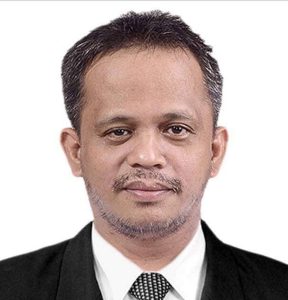
Orientalism, in this respect, is about power relations, and is manifest in the subjection of the intellectual tradition of the East as subordinate to the ideals of the Enlightenment. Said thought that such was brought about by a Eurocentric bias. Europe is normally viewed as the bastion of civilization, often elaborating that philosophy was born in the continent, as the love for wisdom was the exclusive domain of the Early Greeks (emphasis mine).
Orientalism is rooted in the arrogance of the assertion that the Western ideal of man is far more superior than any other. The way of life and culture of the East, with specific attribution to the Middle East, are labeled hypocritically as undemocratic and backward by the global hegemonic powers.
Said’s corpus is an attempt to break the false assumption that the values of humanity, including the arts, are solely anchored on the Eurocentric ideal. In fact, much of the manner by which we interpret the world is bred from European colonialism and Western imperialism.
The problem is that the West loves to arrogate about the fruits of modern democracy and material progress when in reality, the prosperity of affluent societies came at the expense of poor colonies whose people have been exploited through slavery and the extraction of natural resources.
The West wants to portray itself as the model for human progress through science, but often forgets about the pain and suffering it has inflicted on powerless indigenous peoples. Said, meanwhile, dedicated a big part of his body of work to the history and politics of the Palestinian and Arab-Israel conflict, and the way the same are depicted in Western media.
In particular, most of Middle Eastern countries refuse to accept the liberal tradition of politics, which emphasizes on its view of individual freedom and the role consensus as the way of perfecting statecraft. The problem of such is the lack of understanding of the meaning of the politics of difference.
The US insists on bringing its own brand of democracy as the right model for Iraq and Syria, only to fail in both experiments. Traditional societies in the East embrace religious values which liberalism simply puts aside as part of what it calls the background culture.
But the bigger issue when it comes to Eurocentrism is its worship of egocentrism, of making man the center and source of all meaning. Reason is the highest form and achievement of humanity, it argues, the Enlightenment being its highest expression.
Yet, the West cannot lay claim to such an achievement exclusively. Eastern societies have similarly ventured into scientific discovery and meaningful philosophical excursions into the question concerning nature and science, which is branded by the West as traditional wisdom.
Said’s work has become the most important expression of decolonialization. The bias of the West is founded in the belief that the consciousness of the white man is the highest form of intellectual achievement.
Books contain the exploits of European conquerors and heroes but seldom mention the ancient kingdom of Mesopotamia and its vast contribution to human civilization, and their role in the making of history as an ancient civilization. Even today, Western news organizations report Middle-Eastern wars from their own vantage point but too little is said about the feelings of the ordinary Syrian or Afghan.
Critics are content in saying that Said is anti-West. But such criticism only obfuscates the real issue. The critical question is grounded in the perpetuation of the hegemonic and dominant interests of the West in almost all facets of human life. Orientalism promotes the exclusion of people, often branding them as “other”. For him, the worst impact of imperialism is to make people think that they are “exclusively white or black, Western or Oriental.”
The world judges this other as alien and the enemy of freedom. In the end, the Western and Eastern divide is only an illusion that wrongly promotes an unnecessary advantage to those who were born on the other side of the fence.



